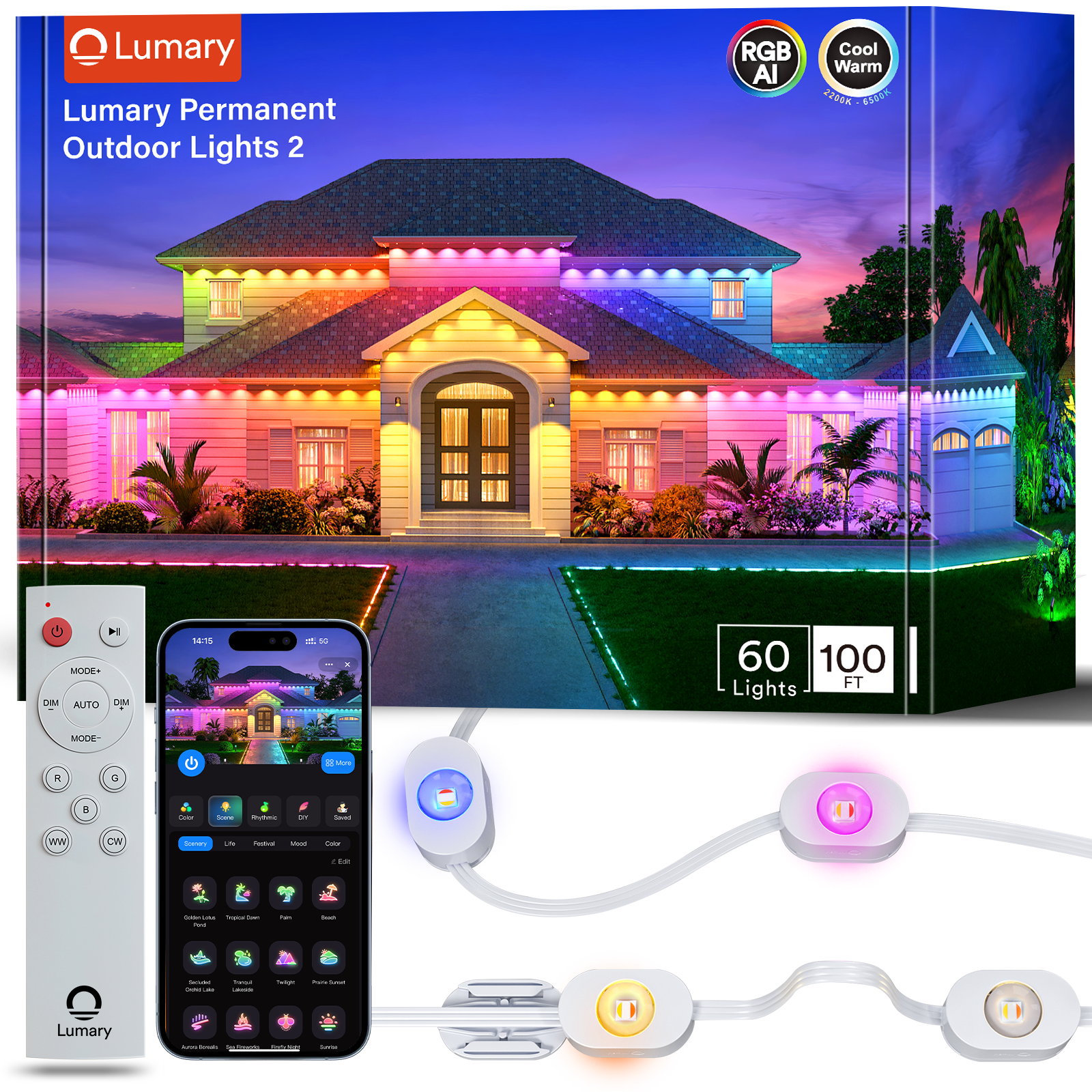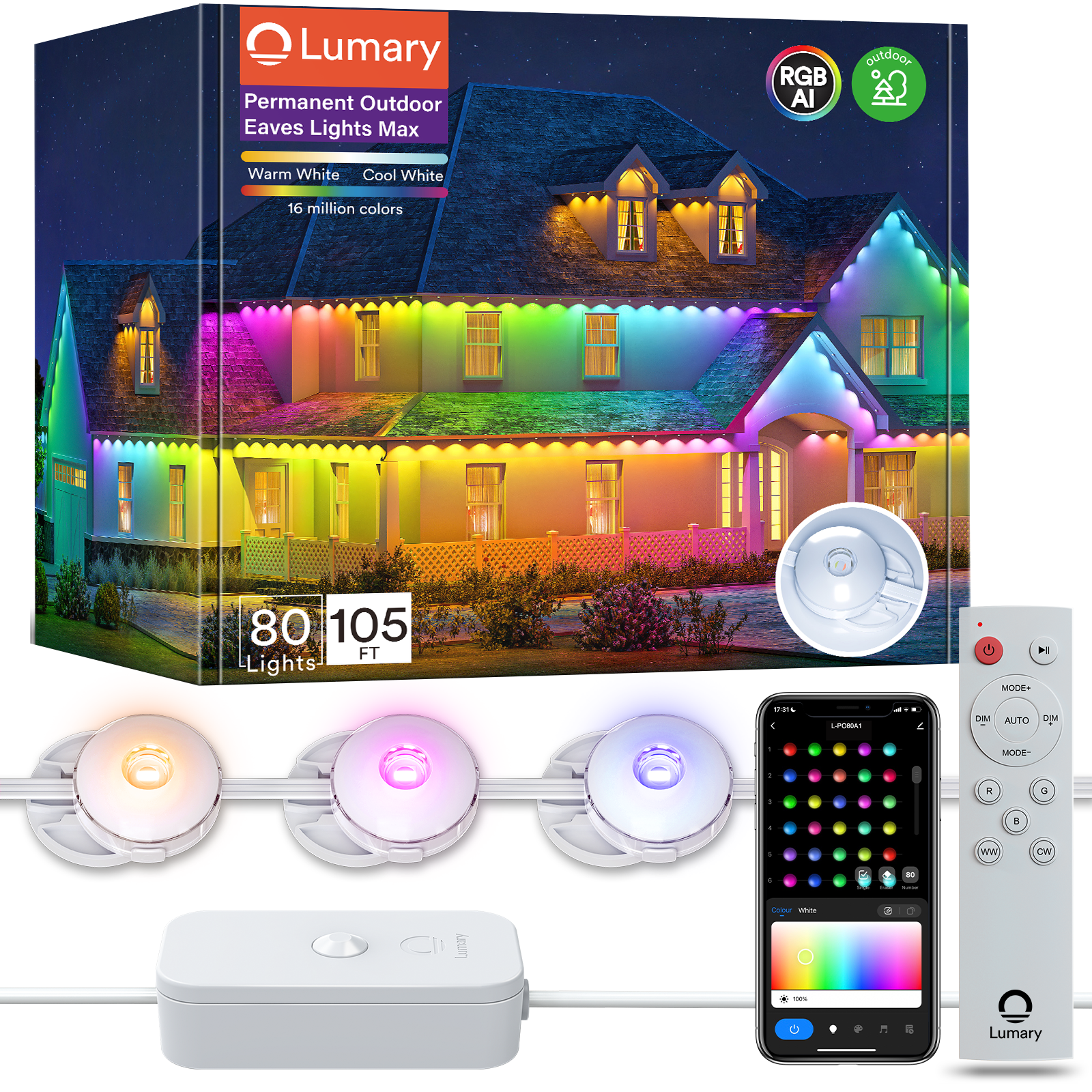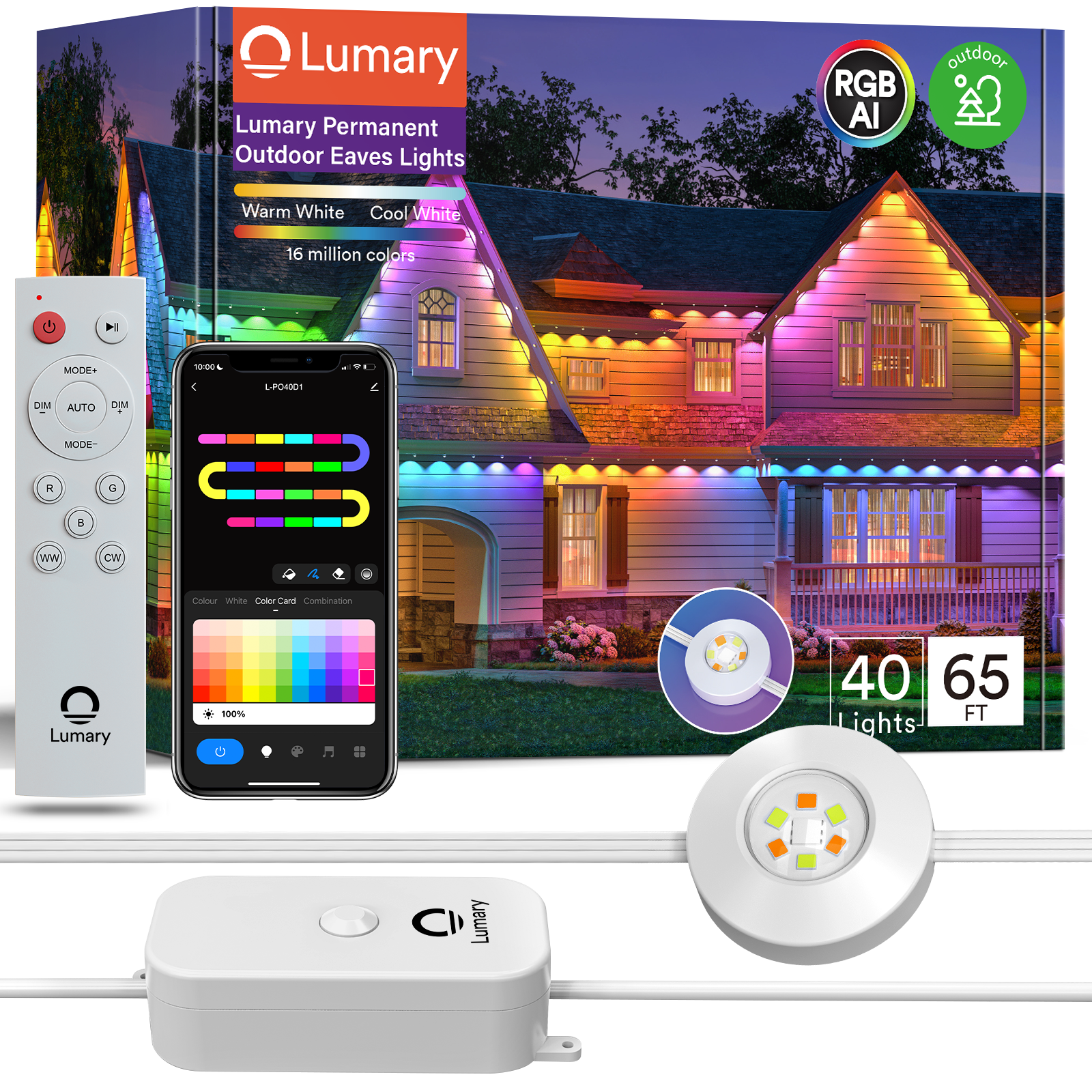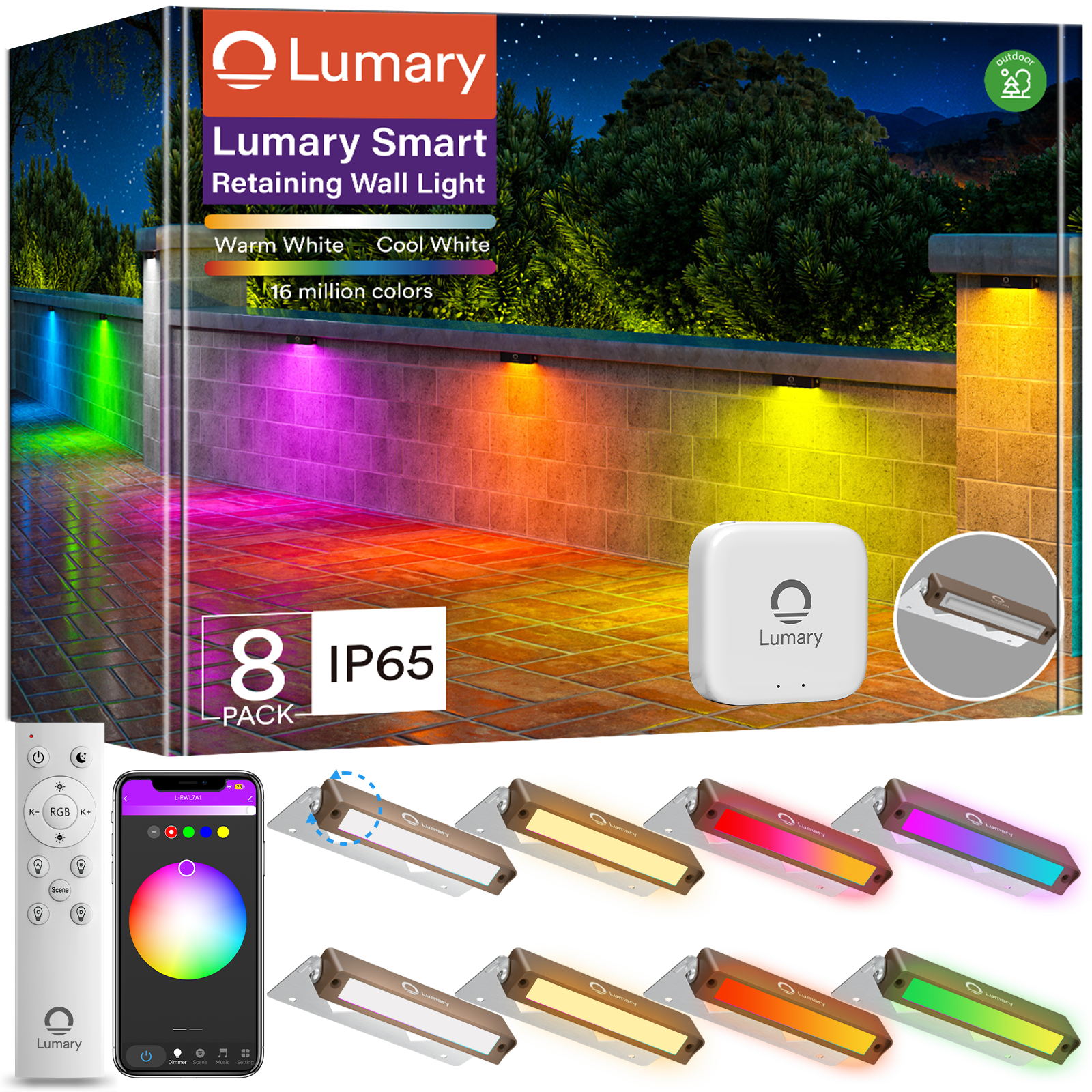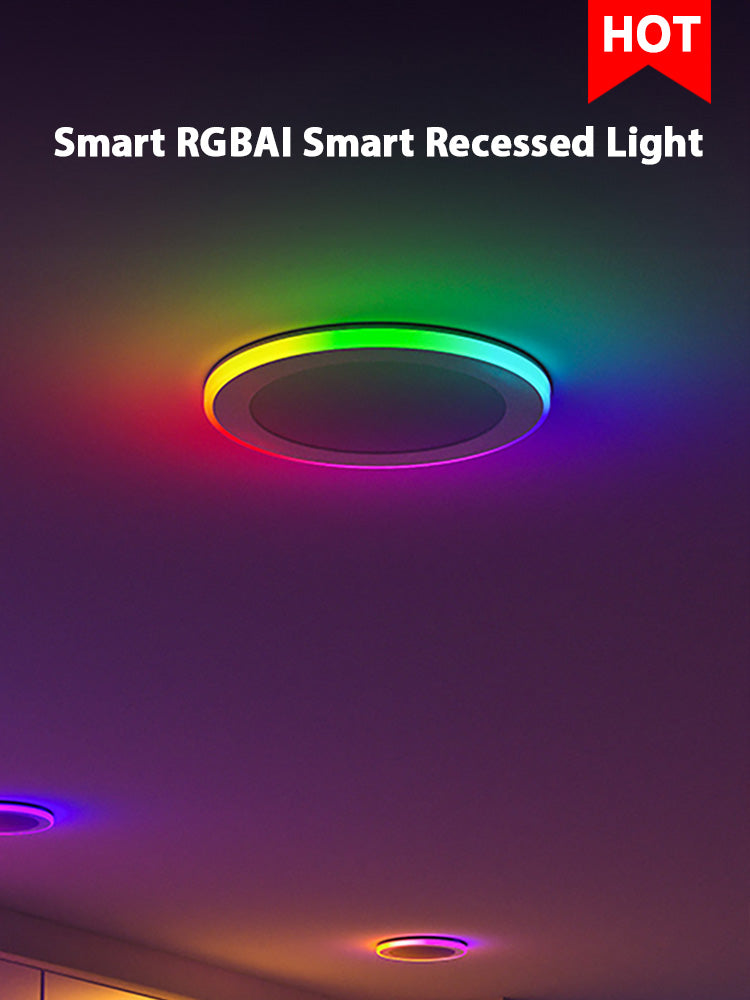Outdoor lighting can completely transform your home’s exterior house lighting. It enhances safety by illuminating pathways and reducing trip hazards. It also boosts security, deterring intruders with well-lit spaces. Beyond functionality, it adds charm and elegance, highlighting architectural features and creating a welcoming ambiance. According to the National Association of Realtors, installing outdoor lighting can even increase your home’s value by up to 15%. With the right approach, you can achieve professional-quality results that make your property both beautiful and practical.
Key Takeaways

-
Start with a thorough assessment of your outdoor space to identify key areas that need lighting, enhancing both safety and aesthetics.
-
Define clear lighting objectives based on your needs, whether it's improving safety, enhancing beauty, or creating a specific mood.
-
Choose durable, weather-resistant fixtures and energy-efficient LED bulbs to ensure longevity and reduce electricity costs.
-
Incorporate layered lighting techniques by combining ambient, task, and accent lighting for a balanced and visually appealing setup.
-
Utilize smart lighting solutions for convenience, allowing you to control brightness, colors, and schedules from your smartphone.
-
Follow a step-by-step installation process, prioritizing safety by turning off power and securing wiring to prevent hazards.
-
Regularly maintain your outdoor lighting by inspecting fixtures, cleaning them, and replacing burnt-out bulbs to keep your space inviting.
Planning and Preparation for Exterior House Lighting
Proper planning and preparation lay the foundation for a successful outdoor lighting project. By taking the time to evaluate your space, define your goals, and understand placement, you can create a lighting setup that enhances both functionality and aesthetics.
Assessing Your Outdoor Space
Start by examining your outdoor area during the day and at night. This helps you identify the spots that need lighting the most. Look for pathways, entryways, or dark corners that could benefit from illumination. Consider how natural light interacts with your space during the day and how shadows fall at night.
Take note of key features like trees, sculptures, or architectural details. These elements can become focal points when highlighted with the right lighting. Also, think about areas where safety is a concern, such as stairs or uneven surfaces. A thorough assessment ensures you don’t miss any critical spots.
"The main starting point when considering exterior lighting is to establish the primary design goal: are you hoping to identify key features, add drama to surfaces that don’t normally stand out, or simply create a clear path and entryway?"
Defining Your Lighting Objectives
What do you want your lighting to achieve? This question is essential to guide your decisions. Are you aiming to enhance the beauty of your garden, improve safety, or both? For example, if safety is your priority, focus on illuminating pathways and entry points. If aesthetics matter more, consider accent lighting to highlight landscaping or architectural details.
Think about the mood you want to create. Warm lighting can make your space feel cozy and inviting, while cooler tones offer a modern and sleek look. Tailor your objectives to match your needs and preferences. Clear goals will help you choose the right fixtures and placement.
Understanding Lighting Needs and Placement
Placement plays a crucial role in achieving effective exterior house lighting. Poorly placed lights can create glare, harsh shadows, or uneven illumination. To avoid these issues, plan your layout carefully. For pathways, position lights about 8 to 10 feet apart to ensure even coverage without overcrowding. For accent lighting, use uplighting to highlight trees or walls, creating depth and drama.
Layering your lighting adds dimension to your space. Combine ambient, task, and accent lighting to achieve a balanced look. For example, use ambient lighting for general illumination, task lighting for specific areas like patios, and accent lighting to draw attention to key features.
Consider energy-efficient options like LED lights to reduce electricity costs and environmental impact. Smart lighting solutions, such as the Lumary RGBAI Smart Outdoor Lights Bar, offer customizable colors and scenes, making it easy to adjust your setup for any occasion.
Choosing the Right Fixtures and Bulbs for Exterior House Lighting
Selecting the right fixtures and bulbs is crucial for creating a functional and visually appealing outdoor lighting setup. The right choices ensure durability, energy efficiency, and a style that complements your space. Let’s explore how to make the best decisions for your exterior house lighting project.
Durable and Weather-Resistant Fixtures
Outdoor lighting fixtures must withstand the elements. Rain, snow, and extreme temperatures can take a toll on poorly made products. Look for fixtures labeled as weather-resistant or waterproof, such as those with an IP65 rating. These fixtures are designed to handle harsh conditions and maintain their performance over time.
Materials matter too. Opt for sturdy options like aluminum or stainless steel, which resist rust and corrosion. Fixtures with protective coatings add an extra layer of durability. For areas prone to heavy rain or snow, consider enclosed designs that shield internal components from moisture.
"Durable fixtures not only last longer but also save you money by reducing the need for frequent replacements."
Energy-Efficient Lighting Options
Energy-efficient lighting is a smart choice for both your wallet and the environment. LED lights are the gold standard for outdoor lighting. They consume significantly less energy than traditional bulbs, helping you cut down on electricity costs. Plus, they last much longer, reducing the hassle of frequent replacements.
LEDs also offer versatility. You can find them in various color temperatures, from warm white to cool daylight, allowing you to create the perfect ambiance. Many LED options are dimmable, giving you control over brightness levels. For added convenience, consider smart LED lights, which let you adjust settings through an app or voice commands.
Motion sensors and timers further enhance energy efficiency. Lights activate only when needed, conserving power and extending the lifespan of your bulbs. This feature is especially useful for security lighting around entryways or driveways.
Matching Style and Functionality to Your Space
Your outdoor lighting should reflect your personal style while serving its purpose effectively. Start by considering the overall aesthetic of your home. Modern fixtures with clean lines work well for contemporary spaces, while lantern-style designs add charm to traditional homes.
Think about the function of each light. Pathway lights should provide clear visibility without being overpowering. Wall-mounted fixtures can highlight architectural details or illuminate entryways. Accent lights, like uplights or spotlights, draw attention to landscaping or decorative features.
When choosing bulbs, aim for a balance between brightness and ambiance. Warm, low-lumen bulbs create a cozy atmosphere, perfect for patios or gardens. Cooler tones suit task-oriented areas like driveways or workspaces. Avoid overly bright lights that can cause glare or disrupt the mood.
For a modern touch, explore smart lighting solutions like the Lumary RGBAI Smart Outdoor Lights Bar. These lights offer customizable colors and scenes, allowing you to tailor your setup for any occasion. With features like music synchronization and app control, they combine style and functionality seamlessly.
Exploring Smart Lighting Solutions (e.g., Lumary RGBAI Smart Outdoor Lights Bar)

Smart lighting solutions have revolutionized the way you can illuminate outdoor spaces. They combine convenience, functionality, and style, making them a must-have for modern exterior house lighting. If you're looking to elevate your outdoor setup, smart lighting offers endless possibilities.
Why Choose Smart Lighting?
Smart lighting gives you control over your outdoor ambiance with just a few taps on your phone or a simple voice command. You can adjust brightness, change colors, or even schedule lights to turn on and off automatically. This level of customization ensures your lighting always matches your mood or occasion.
"Smart lighting not only enhances convenience but also helps you save energy by allowing precise control over when and how your lights operate."
Features of the Lumary RGBAI Smart Outdoor Lights Bar
The Lumary RGBAI Smart Outdoor Lights Bar stands out as a versatile and innovative option for your outdoor lighting needs. Here’s what makes it a game-changer:
-
Advanced RGBAI+WW LED Technology: These lights offer a warm 2200K white light effect, perfect for creating a cozy atmosphere. With 16 million colors and 54 preset scenes, you can easily set the mood for any event.
-
Customizable Lighting Effects: Each light features six individually controllable segments, allowing you to create vivid color displays or subtle gradients. Whether you’re hosting a party or enjoying a quiet evening, these lights adapt to your needs.
-
Music Synchronization: The lights can sync with music rhythms, adding a dynamic touch to your outdoor gatherings. Imagine your lights dancing to your favorite tunes!
-
Durability and Weather Resistance: Built with IP65 waterproofing and sturdy aluminum construction, these lights withstand rain, snow, and other harsh conditions. They’re designed to last up to 15,000 hours, ensuring long-term reliability.
-
Smart Control Options: Use the Lumary app or voice commands with Alexa, Google Assistant, or Siri to control your lights effortlessly. You can even set timers and schedules for added convenience.
Benefits of Smart Lighting for Your Outdoor Space
-
Energy Efficiency: Smart lights like the Lumary RGBAI use LED technology, which consumes less energy than traditional bulbs. You save on electricity bills while reducing your environmental impact.
-
Enhanced Security: Schedule your lights to turn on at specific times or use motion sensors to deter intruders. A well-lit exterior adds an extra layer of safety to your home.
-
Personalized Ambiance: With customizable colors and scenes, you can create the perfect atmosphere for any occasion. From festive celebrations to relaxing evenings, smart lighting adapts to your lifestyle.
-
Ease of Use: Forget about manual switches. Control your lights remotely through an app or with voice commands, making adjustments quick and hassle-free.
Tips for Using Smart Lighting Effectively
-
Plan Your Layout: Decide where smart lights will have the most impact. Highlight pathways, gardens, or architectural features to enhance both safety and aesthetics.
-
Avoid Overlighting: Too much light can overwhelm your space. Use warm, low-lumen settings for a cozy feel and avoid glare.
-
Incorporate Layers: Combine ambient, task, and accent lighting for a balanced look. For example, use the Lumary RGBAI lights for accent lighting while relying on other fixtures for general illumination.
-
Communicate with Neighbors: Ensure your lighting doesn’t spill into neighboring properties. Use shields or glare guards to direct light downward and maintain harmony in your community.
Smart lighting solutions like the Lumary RGBAI Smart Outdoor Lights Bar make it easy to transform your outdoor space into a functional and visually stunning area. With their advanced features and user-friendly controls, you can enjoy a seamless blend of style, convenience, and efficiency.
Step-by-Step Installation Process
Installing outdoor lighting may seem daunting, but breaking it into manageable steps makes the process straightforward. Follow this guide to ensure your exterior house lighting is installed safely and effectively.
Preparing for Installation
Preparation is key to a smooth installation. Start by gathering all the tools and materials you’ll need. Common items include a drill, screwdriver, wire connectors, electrical tape, and a voltage tester. Check the manufacturer’s instructions for any specific tools required for your chosen fixtures.
Before you begin, map out your lighting layout. Use stakes or markers to indicate where each fixture will go. This helps you visualize the final setup and ensures proper spacing. For example, pathway lights should be spaced 8 to 10 feet apart for even illumination.
Turn off the power supply to the area where you’ll be working. Use a voltage tester to confirm that no electricity is flowing. Safety should always come first when dealing with electrical components.
If you’re using smart lighting solutions like motion sensors or automated systems, review their setup instructions. These systems often require additional steps, such as connecting to a Wi-Fi network or downloading a control app.
"Proper preparation not only saves time but also prevents mistakes that could compromise the safety or functionality of your lighting system."
Installing Fixtures and Wiring Safely
Once you’ve prepared, it’s time to install your fixtures. Begin by mounting the fixtures in their designated spots. For wall-mounted lights, use a drill to secure them to the surface. For ground fixtures, insert the stakes firmly into the soil.
Next, connect the wiring. Strip the ends of the wires and use wire connectors to join them. Match the wires by color—black to black, white to white, and green or bare for grounding. Wrap the connections with electrical tape for added security.
If you’re installing LED lighting systems, ensure the transformer is compatible with the wattage of your lights. LED systems are energy-efficient and require less power, but using the wrong transformer can cause issues.
For smart lighting systems, follow the manufacturer’s instructions to integrate features like motion sensors or remote controls. These systems often involve pairing the lights with a smartphone app or smart home hub.
Keep wiring neat and secure. Avoid running wires through high-traffic areas to prevent tripping hazards. Use cable clips or conduit to protect exposed wires and maintain a clean appearance.
Testing and Adjusting Your Lighting Setup
After installation, test your lighting to ensure everything works as intended. Turn the power back on and check each fixture. If a light doesn’t turn on, double-check the wiring connections and ensure the bulb is properly seated.
Adjust the angle and position of your lights to achieve the desired effect. For example, tilt accent lights upward to highlight trees or architectural features. Pathway lights should direct light downward to illuminate the ground without causing glare.
If you’re using smart lights, explore the customization options. Adjust brightness levels, set timers, or create lighting scenes for different occasions. Features like motion sensors and automation can enhance both convenience and security.
Finally, step back and evaluate your setup. Walk around your outdoor space at night to see how the lighting looks from different angles. Make any necessary adjustments to improve coverage or aesthetics.
"Testing and fine-tuning your lighting ensures you get the perfect balance of functionality and style."
Safety and Maintenance Tips for Long-Lasting Exterior House Lighting
Ensuring Safety During Installation
Safety should always come first when working with outdoor lighting. Handling electrical components requires caution and proper preparation. Before starting, turn off the power supply to the area you’re working on. Use a voltage tester to confirm there’s no electricity flowing. This simple step can prevent accidents.
When connecting wires, match them by color—black to black, white to white, and green or bare for grounding. Secure the connections with wire connectors and wrap them with electrical tape for added protection. Keep wiring neat and avoid running it through high-traffic areas to reduce tripping hazards. If you’re unsure about handling electrical work, consult a professional. As one Toronto electrician shared, “Years of experience in outdoor lighting design have taught us that safety is non-negotiable. A small mistake can lead to big problems.”
For installations involving smart lighting systems, follow the manufacturer’s instructions carefully. These systems often require additional steps, like connecting to Wi-Fi or pairing with a control app. Taking your time during installation ensures both safety and functionality.
Preventing Glare and Light Pollution
Glare and light pollution can diminish the beauty of your outdoor lighting and disrupt the environment. To prevent glare, position lights so they illuminate the intended area without shining directly into people’s eyes. For example, pathway lights should direct light downward, while accent lights should highlight features like trees or walls.
Light pollution affects not only your space but also your neighbors and local wildlife. Use shields or glare guards to focus the light where it’s needed. Avoid overly bright bulbs, as they can overpower the ambiance and create harsh lighting. Warm, low-lumen bulbs work best for creating a cozy atmosphere.
Layered lighting can also help reduce glare. Combine ambient, task, and accent lighting to achieve a balanced look. A Toronto electrician emphasized, “Thoughtful lighting design enhances aesthetics while minimizing environmental impact. It’s all about finding the right balance.”
Regular Maintenance and Upkeep
Regular maintenance keeps your outdoor lighting looking great and functioning properly. Start by inspecting your fixtures and wiring every few months. Look for signs of wear, such as rust, corrosion, or frayed wires. Address any issues immediately to prevent further damage.
Clean your fixtures to remove dirt, debris, or water spots. Use a soft cloth and mild soap to avoid scratching the surface. For glass components, a glass cleaner works well. Keeping your fixtures clean ensures they shine brightly and evenly.
Replace burnt-out bulbs promptly to maintain consistent lighting. If you’re using LED bulbs, check their lifespan and replace them as needed. Smart lighting systems may require occasional updates to their software. Check the manufacturer’s app for notifications about updates or new features.
Seasonal changes can also impact your lighting. After heavy rain or snow, inspect your fixtures for water damage. For areas prone to extreme weather, consider using weather-resistant fixtures with an IP65 rating. These fixtures are designed to withstand harsh conditions and last longer.
"A little maintenance goes a long way in preserving the beauty and functionality of your outdoor lighting," says a seasoned Toronto electrician. By staying proactive, you can enjoy a well-lit and inviting outdoor space year-round.
Advanced Techniques for a Professional Look
Layered Lighting for Depth and Dimension
Layered lighting transforms your outdoor space into a visually dynamic and inviting area. By combining different types of lighting, you can create depth and dimension that mimics the work of professional designers. This technique involves using three main layers: ambient, task, and accent lighting.
-
Ambient Lighting: This provides general illumination, ensuring your space feels open and welcoming. Use fixtures like wall-mounted lights or overhead string lights to establish a base layer of light.
-
Task Lighting: Focus on specific areas where functionality is key, such as patios, outdoor kitchens, or pathways. Pathway lights or under-counter LED strips work well for this purpose.
-
Accent Lighting: Highlight unique features like trees, sculptures, or water fountains. Uplights or spotlights are excellent for drawing attention to these focal points.
When layering, think about how the lights interact with each other. Avoid overlighting by balancing brightness levels across the layers. For example, use warm, soft ambient lighting and pair it with brighter task lights for functionality. Accent lights should subtly enhance the space without overpowering the other layers. This approach ensures your outdoor area feels cohesive and visually appealing.
"Layered lighting not only enhances aesthetics but also improves functionality, making your outdoor space more versatile and enjoyable."
Highlighting Key Features with Accent Lighting
Accent lighting allows you to showcase the unique elements of your outdoor space. Whether it’s a majestic tree, a charming garden sculpture, or an architectural detail, the right lighting can make these features stand out beautifully.
To highlight trees, use uplighting to cast dramatic shadows and emphasize their height. For sculptures or water features, position spotlights at an angle to create depth and texture. Wall-mounted fixtures can accentuate architectural details like columns or textured surfaces.
Here are some tips for effective accent lighting:
-
Use Contrast: Combine light and shadow to create visual interest. For instance, uplight a tree while leaving the surrounding area dimly lit.
-
Choose the Right Beam Angle: Narrow beams work well for small features, while wider beams suit larger elements like walls or wide tree canopies.
-
Experiment with Colors: Smart lighting solutions, like the Lumary RGBAI Smart Outdoor Lights Bar, let you play with colors to match the mood or occasion.
Keep in mind that less is often more. Overusing accent lights can clutter the space and reduce their impact. Focus on a few key features to maintain a clean and elegant look.
Incorporating Smart Controls for Convenience and Customization
Smart controls elevate your outdoor lighting to a whole new level. They give you the power to customize your setup with ease, offering both convenience and creativity. With smart lighting, you can adjust brightness, change colors, and even schedule lights to turn on and off automatically—all from your smartphone or through voice commands.
The Lumary RGBAI Smart Outdoor Lights Bar is a perfect example of how smart technology enhances outdoor lighting. These lights allow you to create vivid color displays, sync with music, and control individual segments for unique effects. Imagine hosting a party where your lights dance to the beat of the music or setting a romantic ambiance with soft, warm tones.
Here’s how you can make the most of smart controls:
-
Set Timers and Schedules: Automate your lights to turn on at sunset and off at sunrise. This saves energy and ensures your home always looks inviting.
-
Create Scenes: Customize lighting scenes for different occasions, like a cozy evening or a festive celebration.
-
Enhance Security: Use motion sensors to activate lights when someone approaches, deterring potential intruders.
"Smart lighting not only adds convenience but also allows you to personalize your outdoor space in ways traditional lighting cannot."
By incorporating these advanced techniques, you can achieve a professional-quality outdoor lighting setup that’s both functional and stunning. Whether you’re layering lights, highlighting key features, or embracing smart technology, these strategies will help you create an outdoor space that truly shines.
Installing outdoor lighting like a pro starts with careful planning, selecting the right fixtures, and following a step-by-step installation process. By focusing on safety and regular maintenance, you ensure your lighting setup remains functional and visually appealing for years. Advanced techniques, like layered lighting and accenting key features, elevate your design to a professional level.
Take the first step confidently. Whether you’re enhancing your home’s ambiance or boosting security, innovative solutions like the Lumary RGBAI Smart Outdoor Lights Bar offer unmatched style and functionality. Transform your outdoor space into a beautifully lit, inviting area that you’ll love to enjoy every evening.


